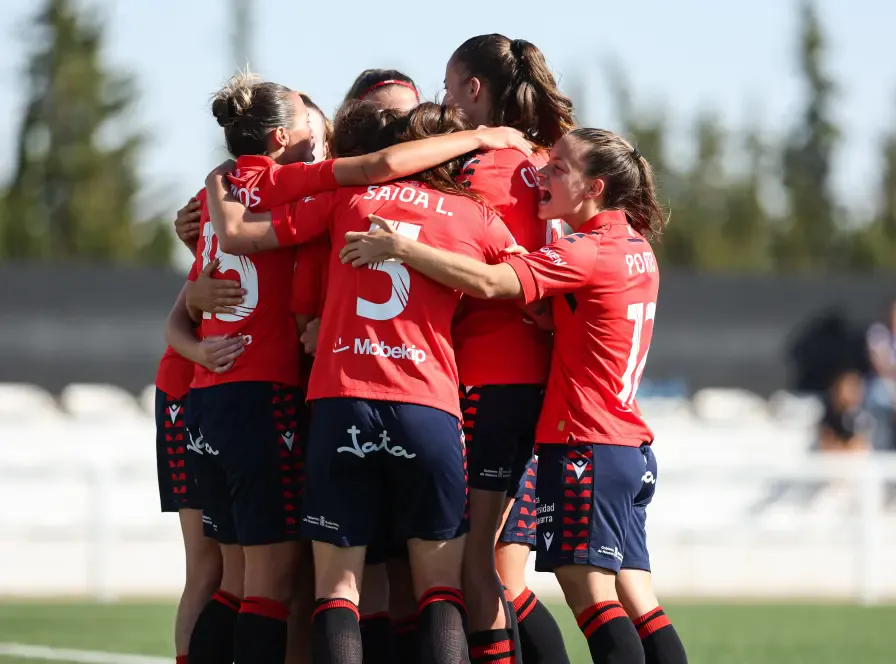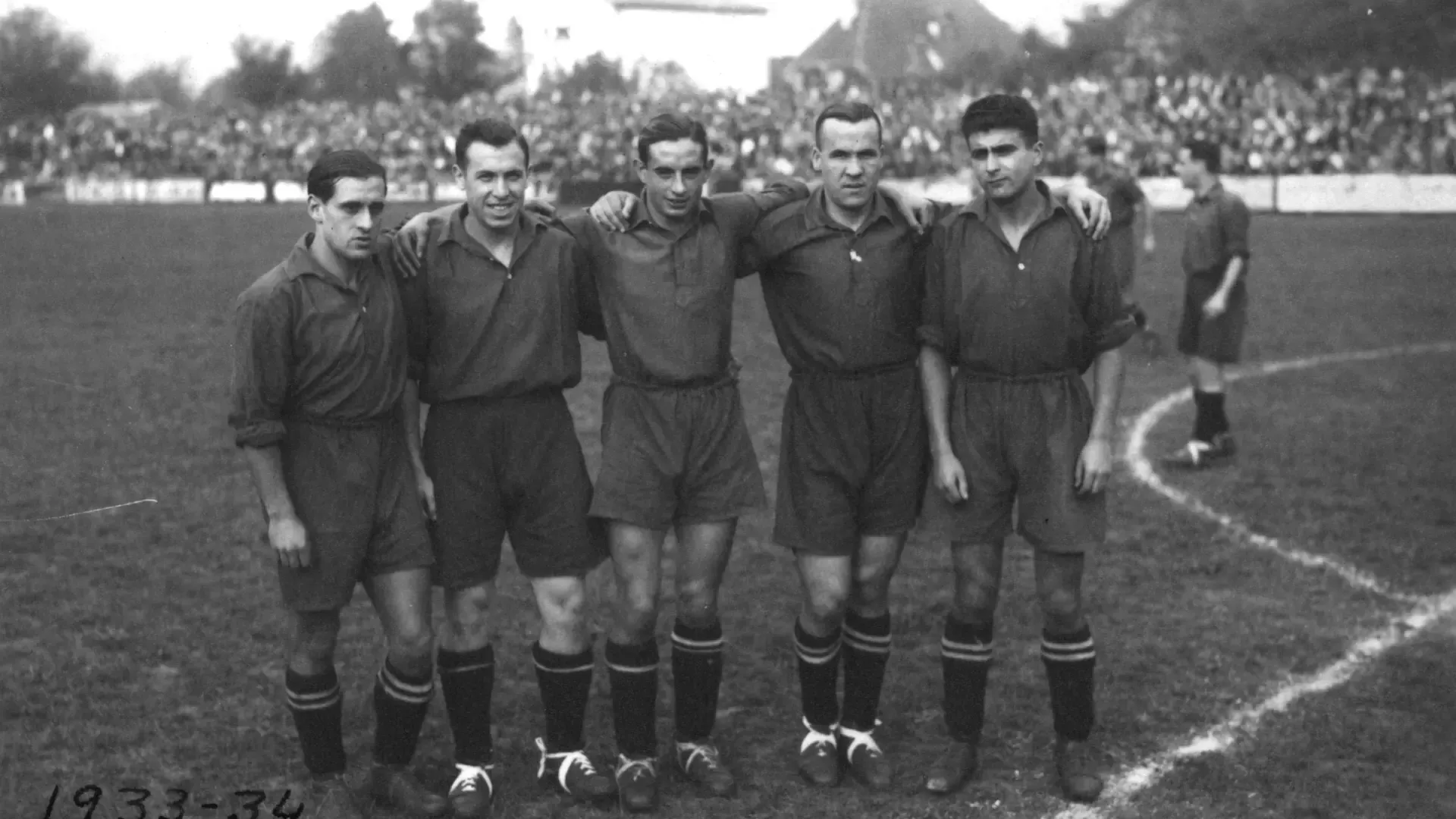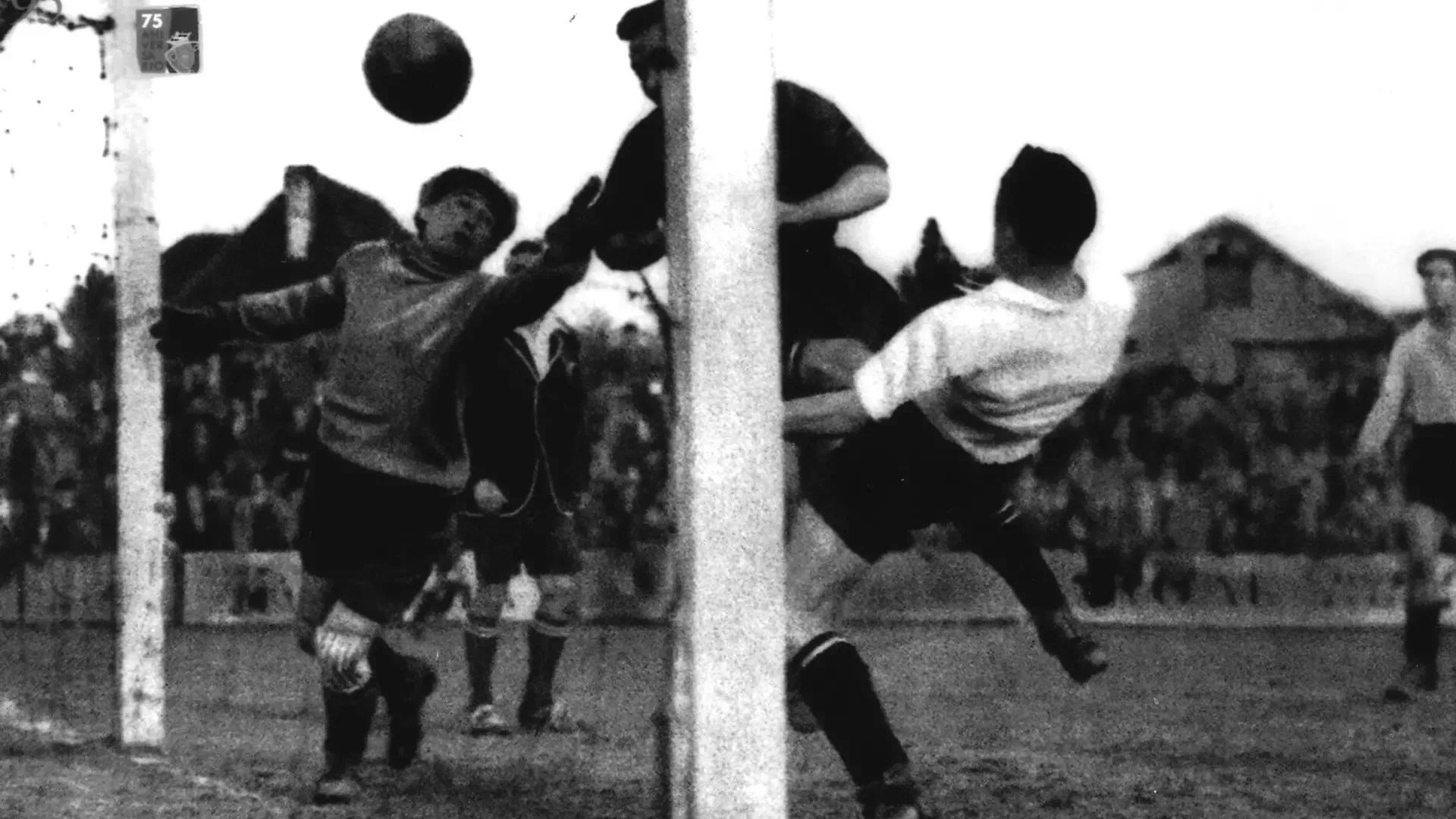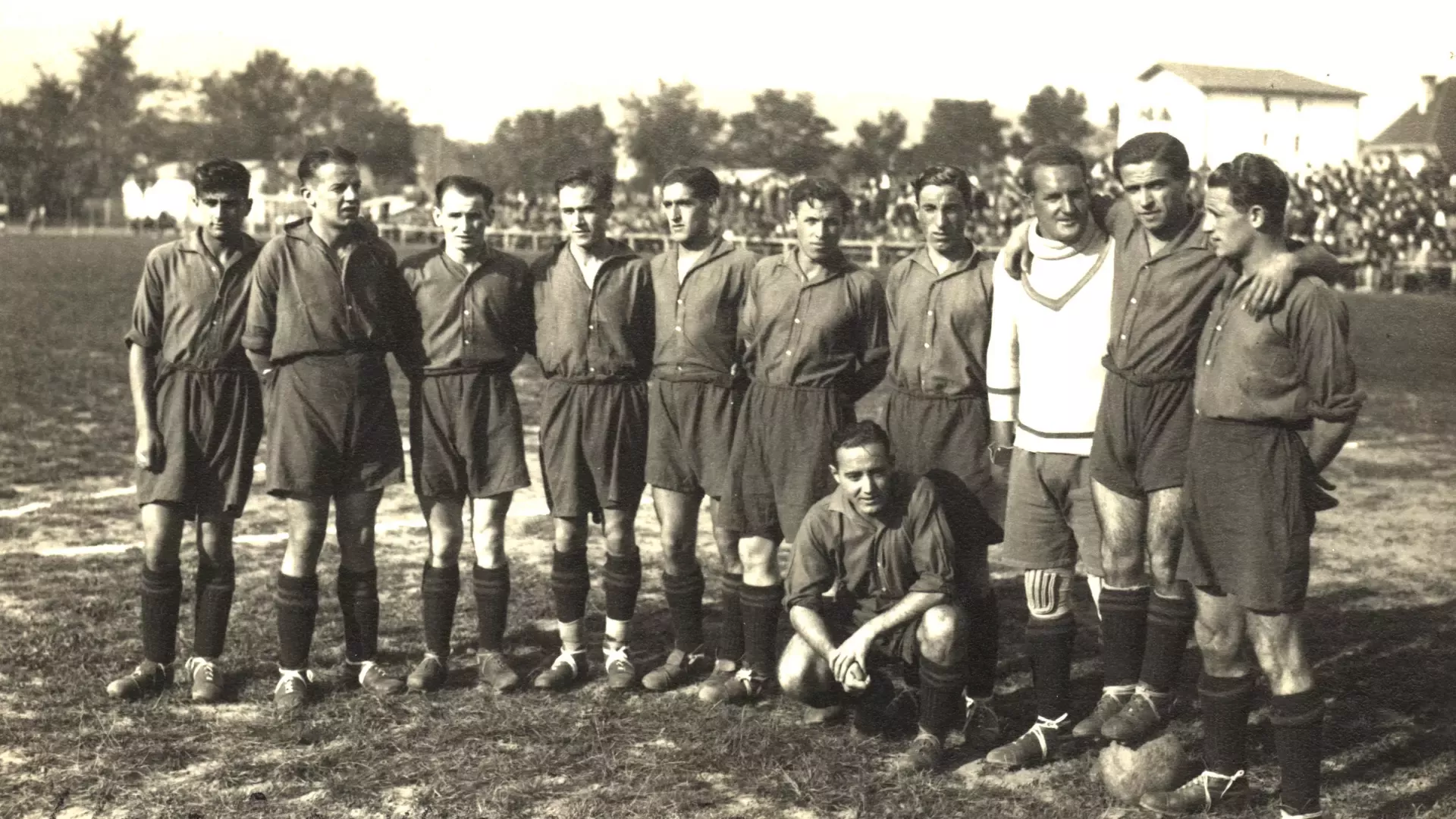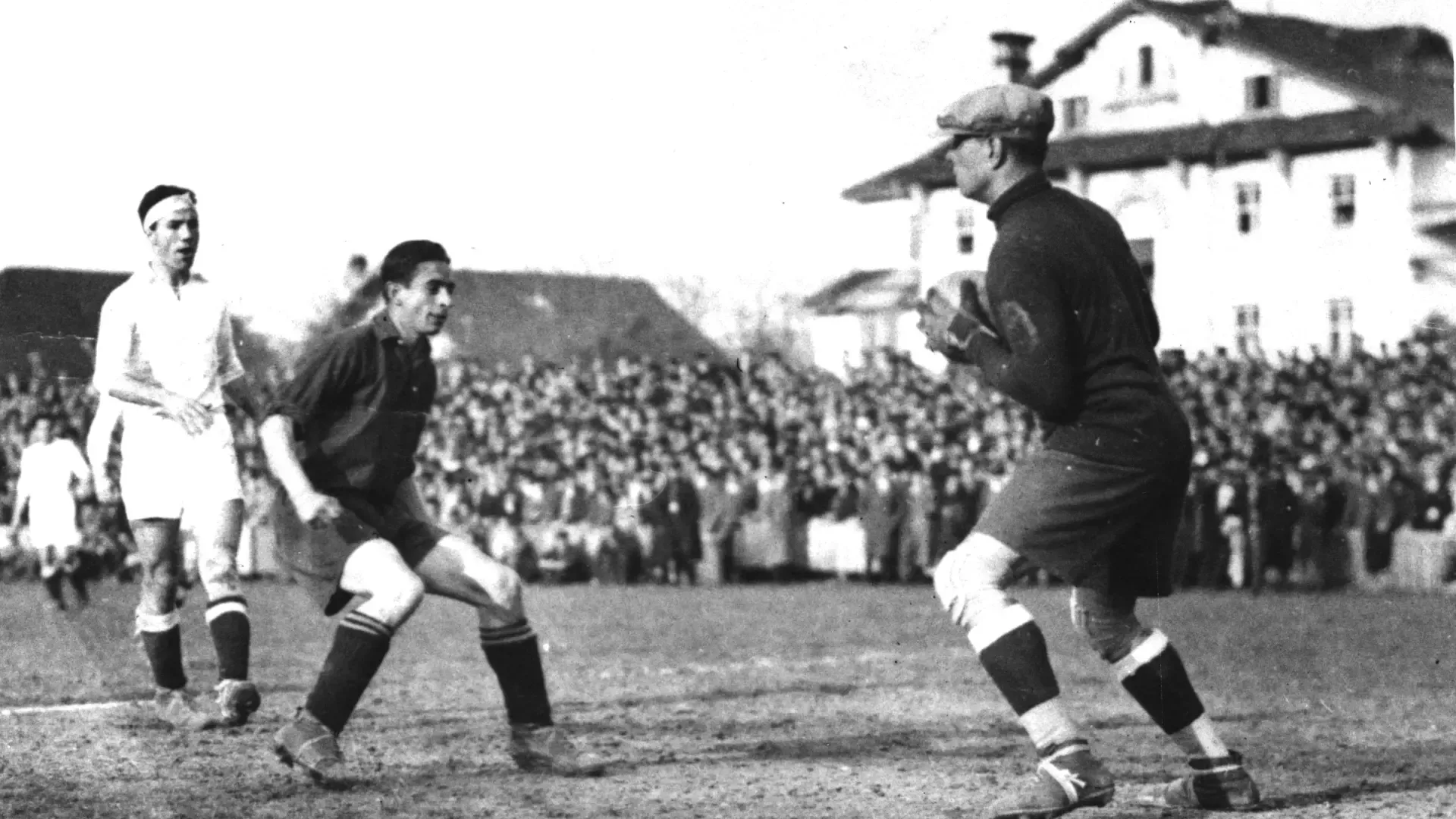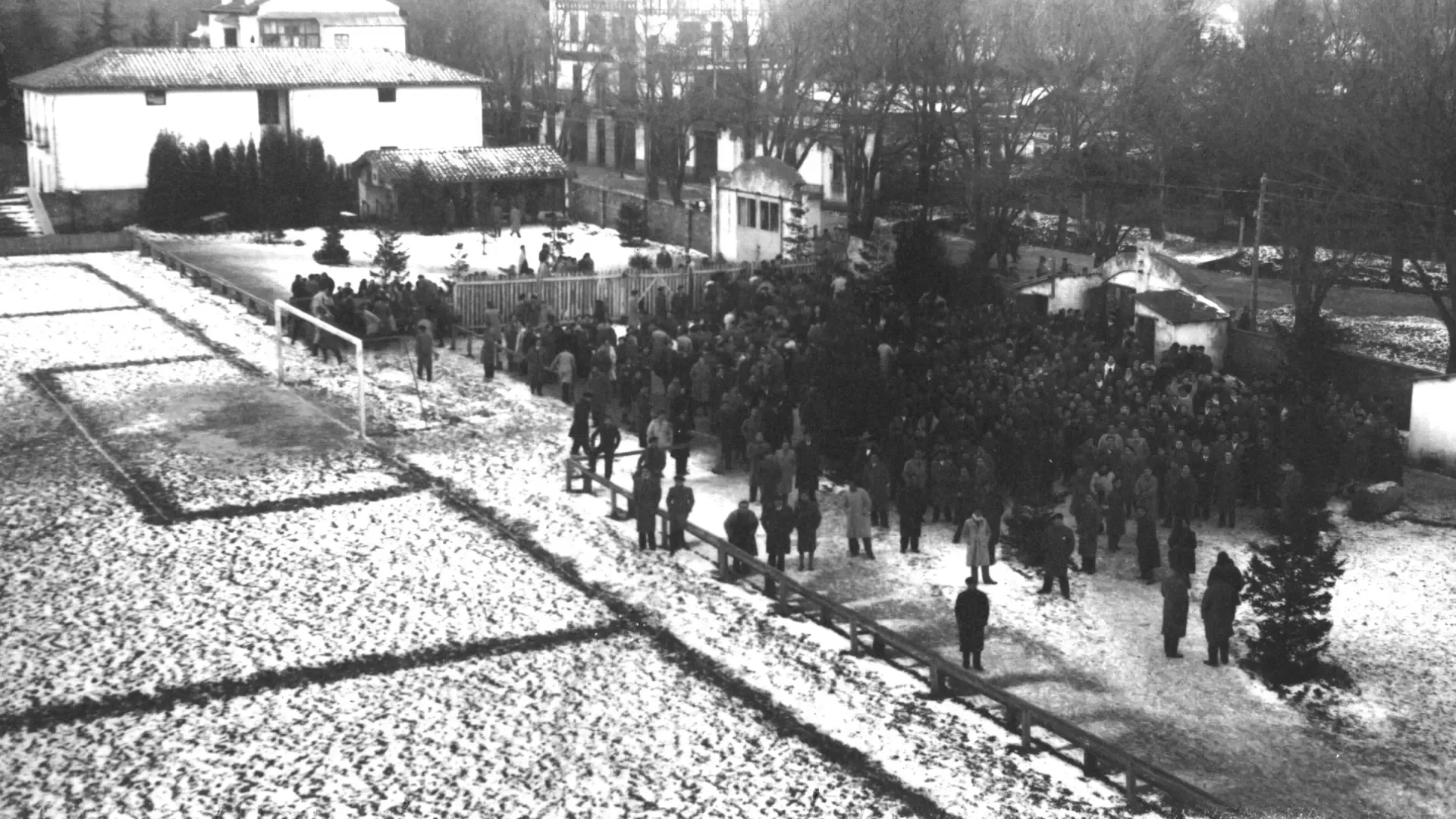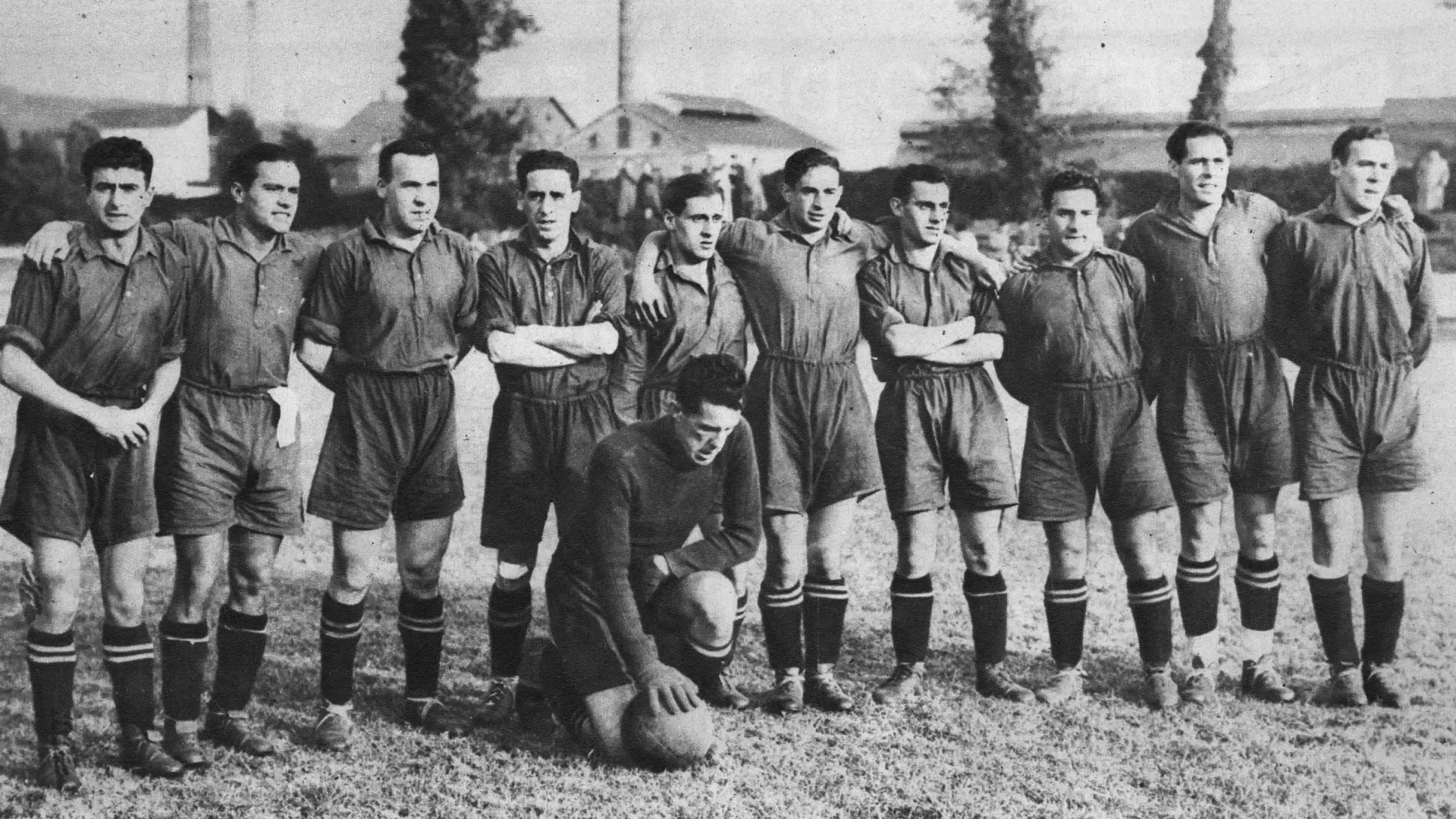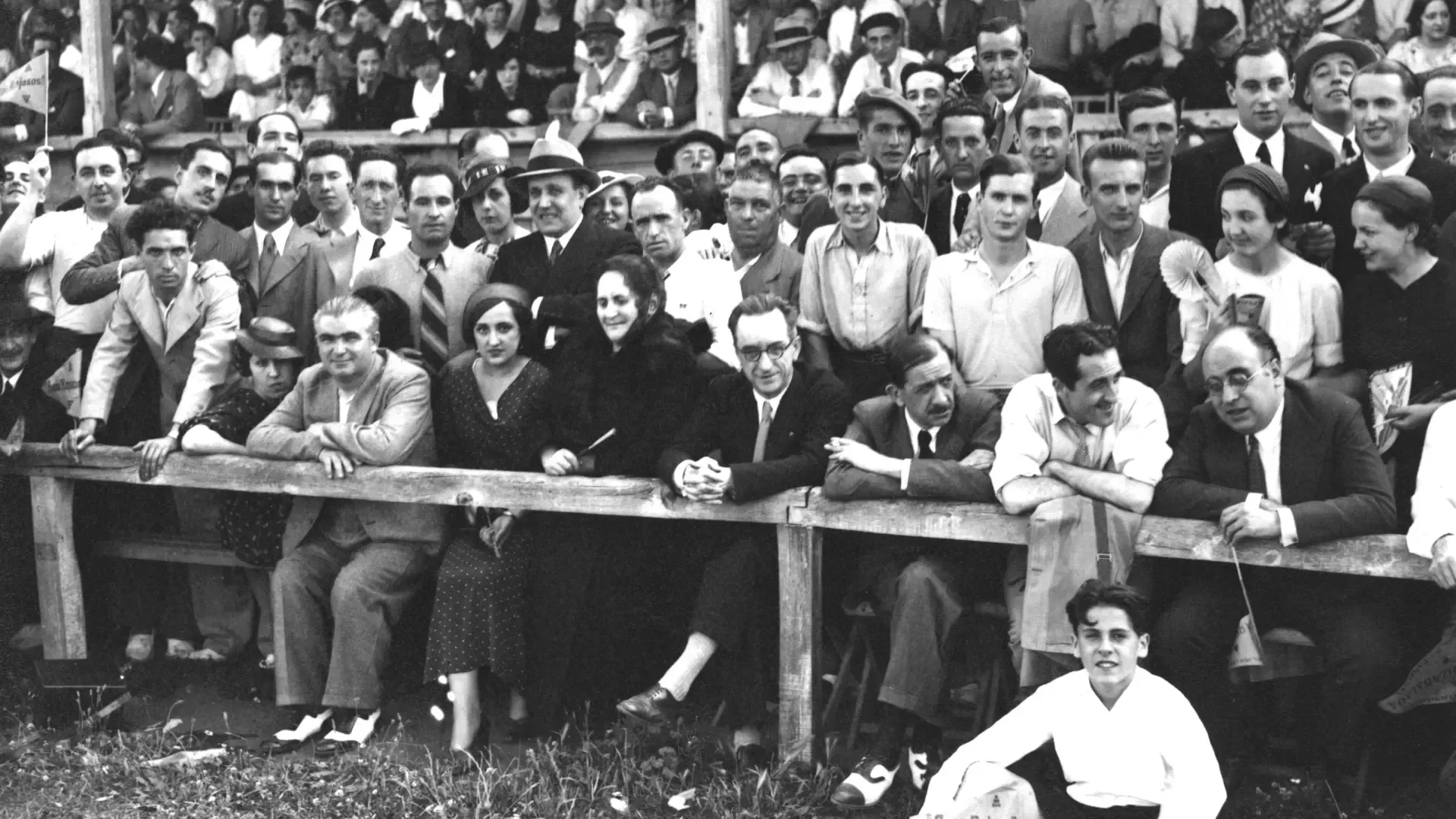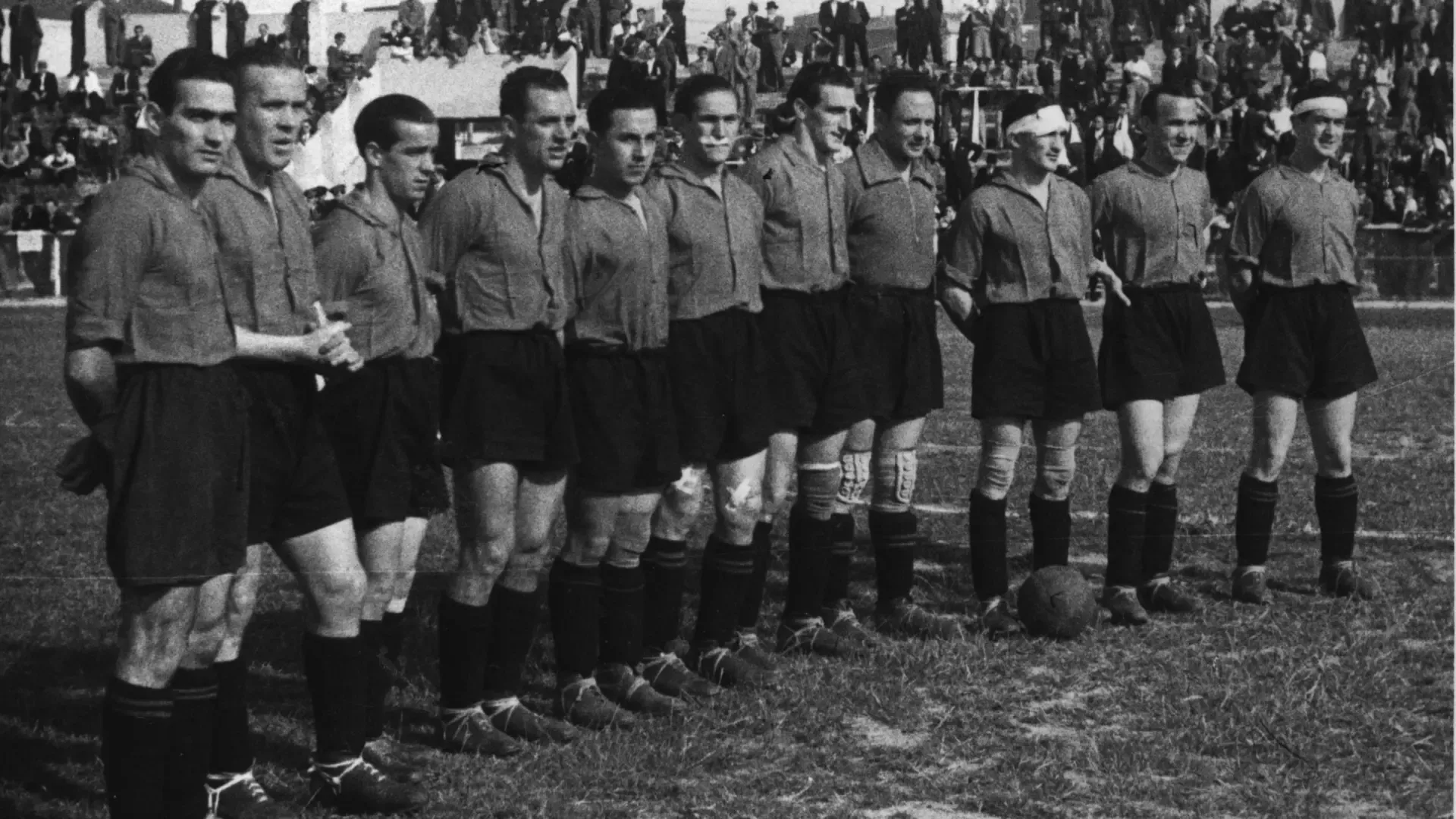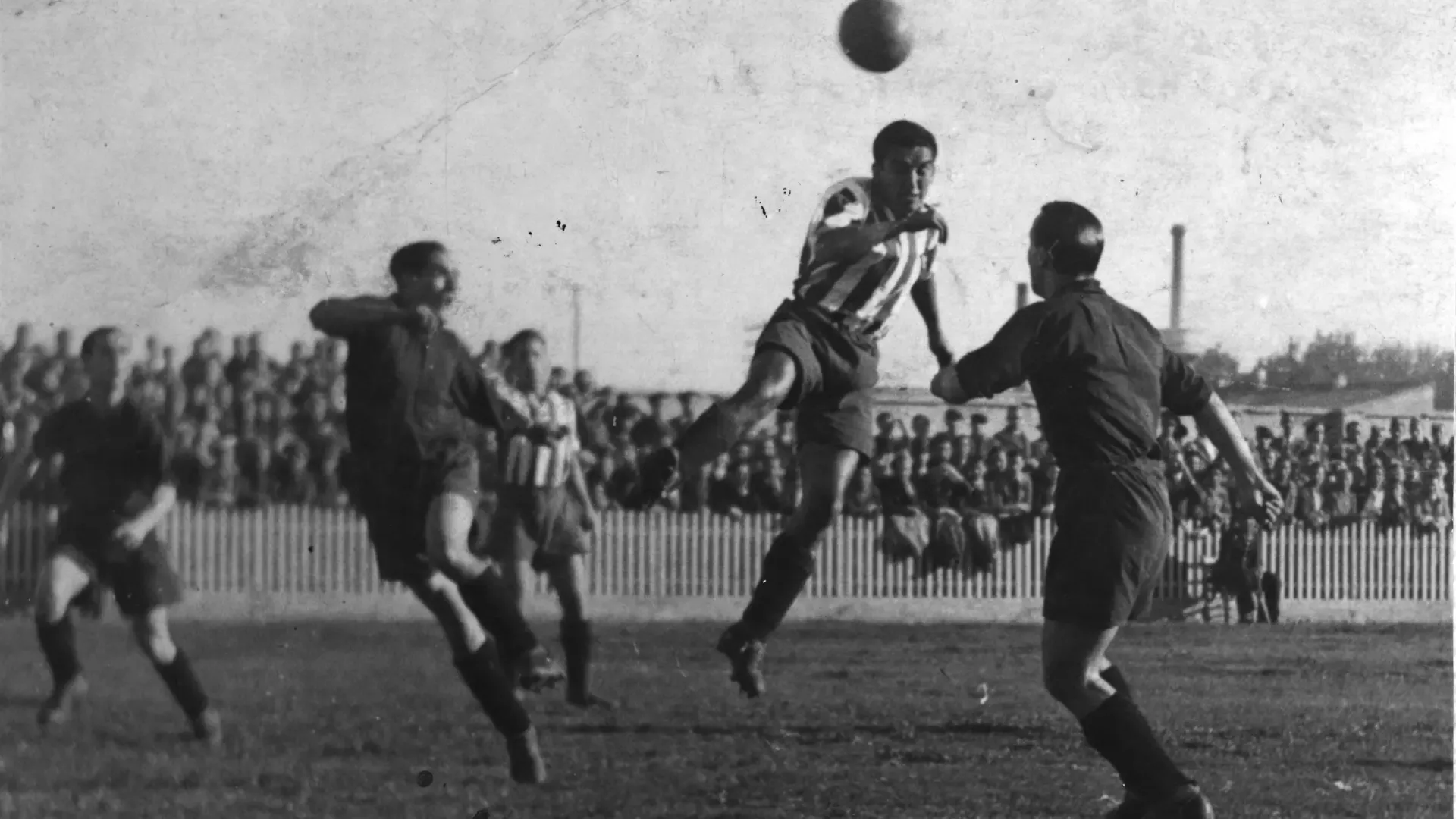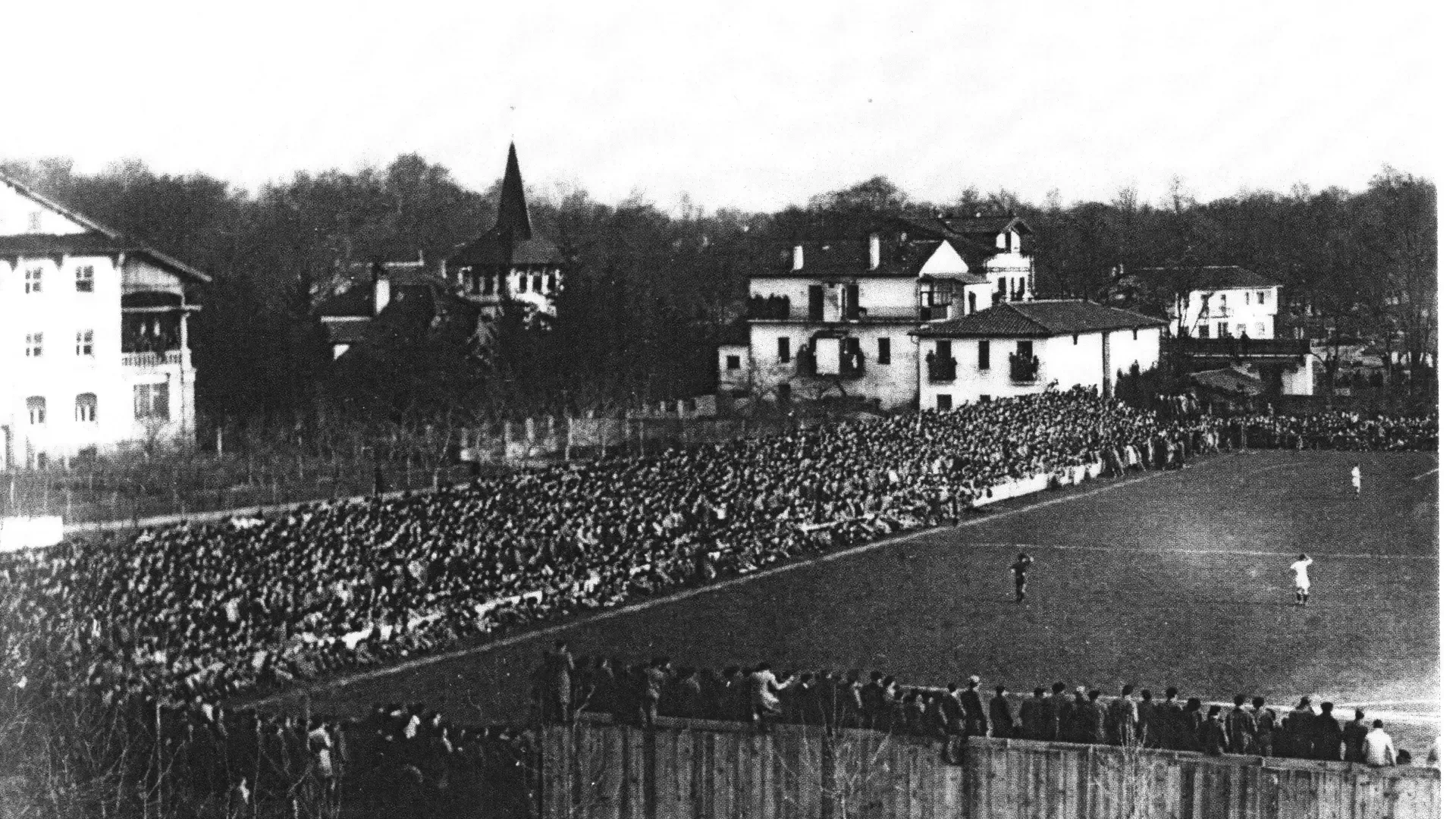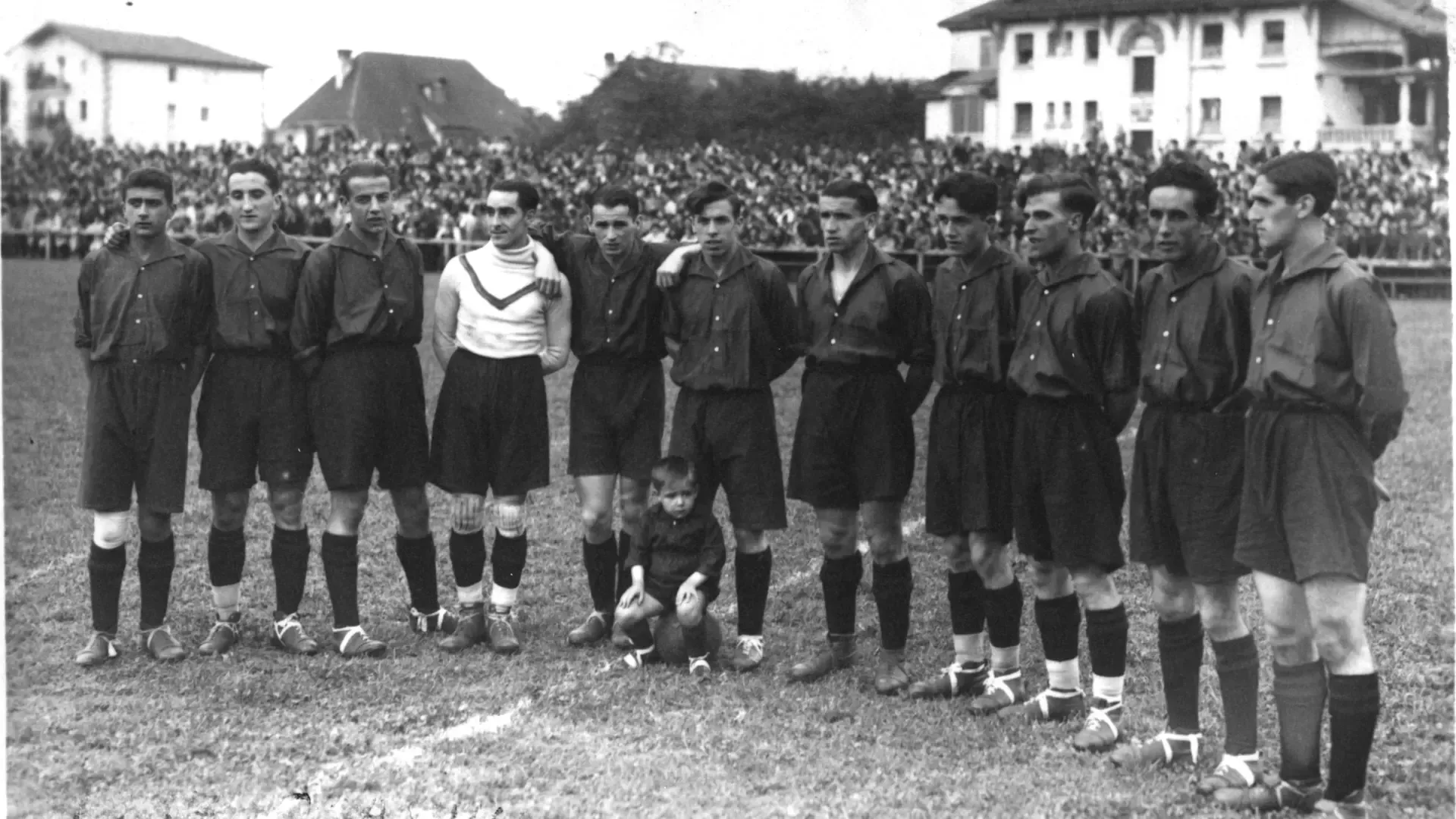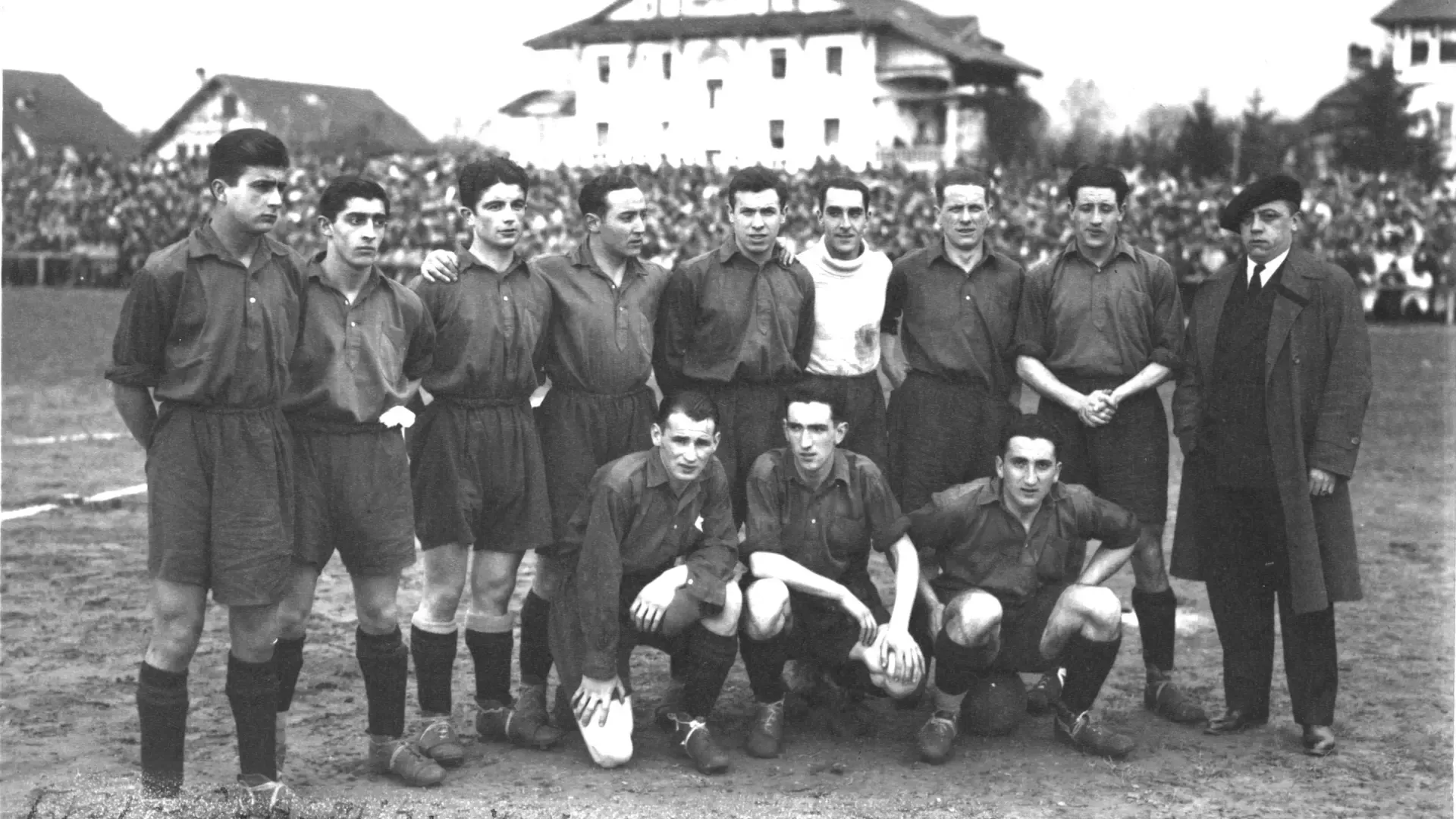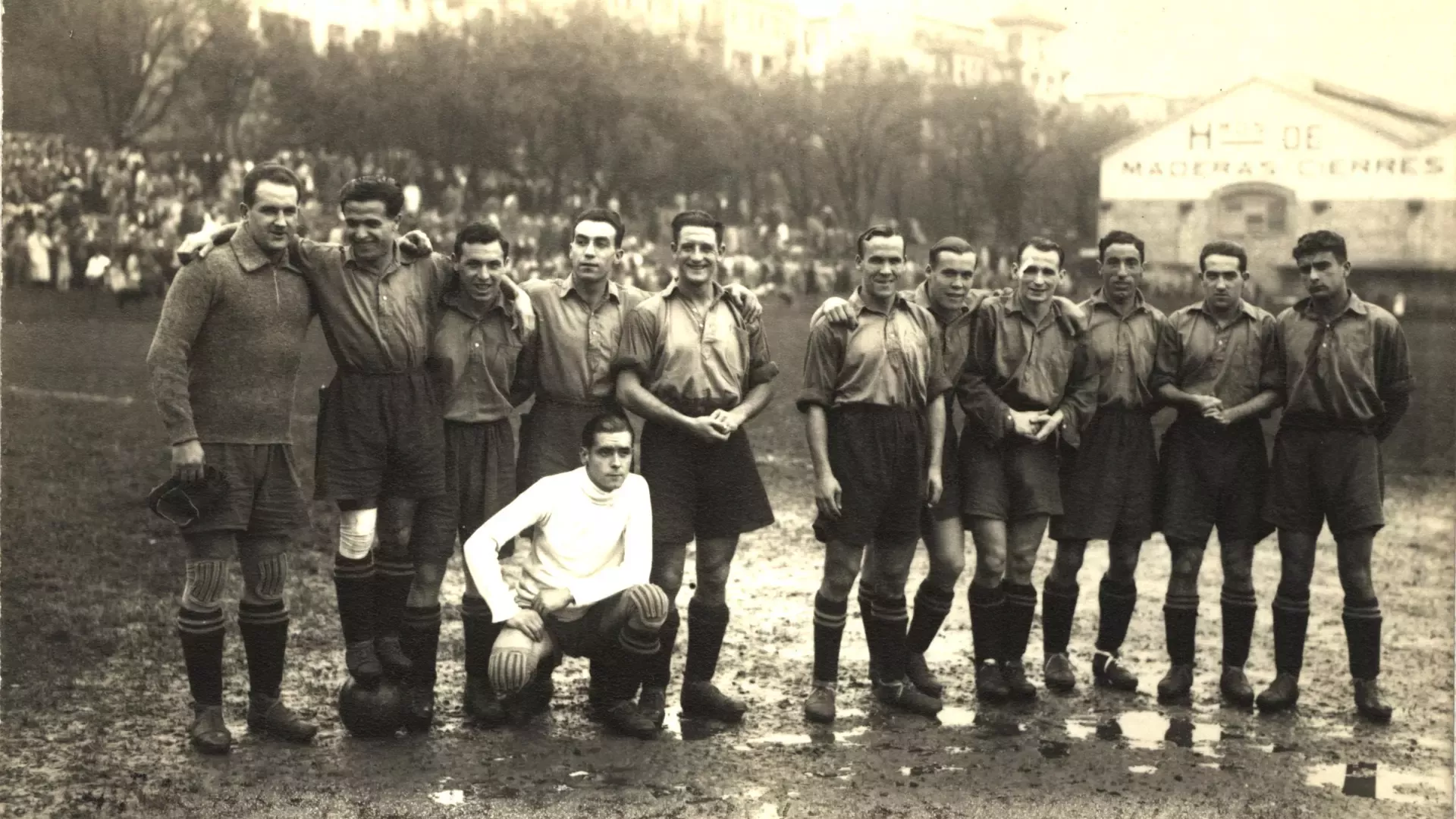1930's
from earning promotion to the Spanish civil war
Osasuna entered the 1930s competing in Tercera División, after the club chose to withdraw from the Segunda División in the 1929-30 season due to disagreement with the group allocation. Yet, despite the setback, the club steadily grew in both structure and ambition. Much of that growth was driven by the leadership of President Natalio Cayuela and the contributions of Martín José Muguiro, a standout player in the 1920s who later served as the team's head coach from 1931 to 1933—a period that saw Osasuna return to the Segunda División.
In 1932, one of the most legendary players in Osasuna's history arrived: Julián Vergara, a prolific striker from Olite. According to recent research, Vergara scored an astonishing 137 goals in 141 matches, making him the most effective goalscorer the club has ever known. He became the cornerstone of the 1934-35 squad, which achieved a historic milestone: Osasuna's first promotion to La Liga.
The only season Osasuna played in Primera División, Julián Vergara scored 20 goals. His record stood for 90 years, until the 2024-25 season when ante budimir scored 21 goals.
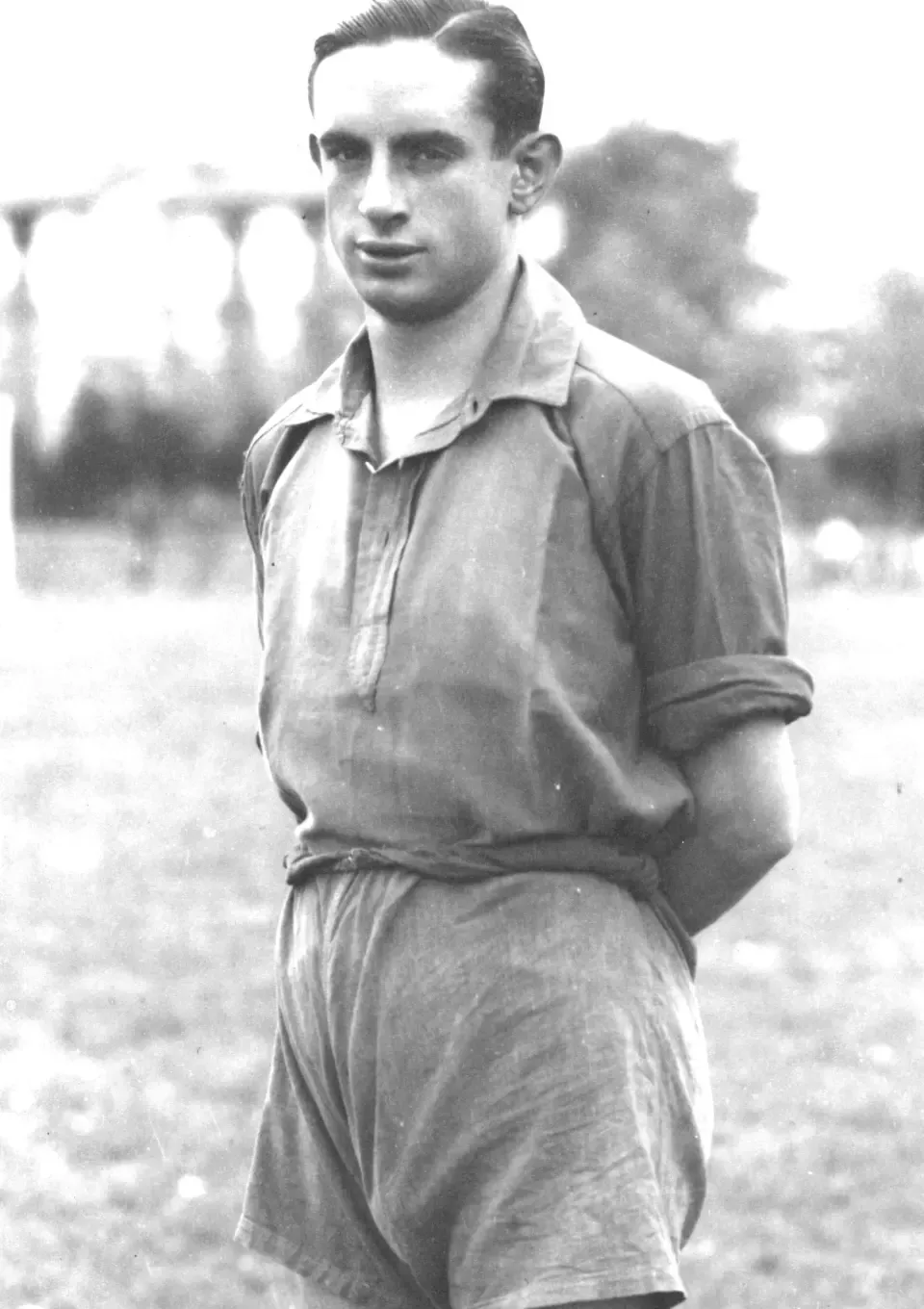
Julián Vergara, one of Osasuna's best strikers.
The outbreak of the Spanish Civil War in 1936 brought Osasuna's promising rise to an abrupt halt. The conflict sent much of the squad to the front lines, where they fought on the Nationalist side. The war claimed the lives of current player Castillo and several former players, including Bezunartea, Avizcuri, and Andrés Jaso—the latter fighting for the Republican side. Others, such as Urreaga, Muguiro, and Aranaz, suffered injuries from artillery fire. Away from the battlefield, political repression also left its mark: Natalio Cayuela, Eladio Cilveti, Ramón Bengaray, Alberto Lamas, and Fortunato Aguirre—all of whom had close ties to the club—were executed or perished under unclear circumstances.
At the end of the war, Osasuna was forced into a relegation playoff against Atlético de Madrid—known at the time as Atlético Aviación. The two had finished bottom of the wartime La Liga season, which had excluded Real Oviedo, whose facilities were destroyed in the war. The decisive match, played in Valencia, ended in defeat for Osasuna, sending the club into Segunda División and plunging it into a post-war crisis that seriously threatened its very survival.


